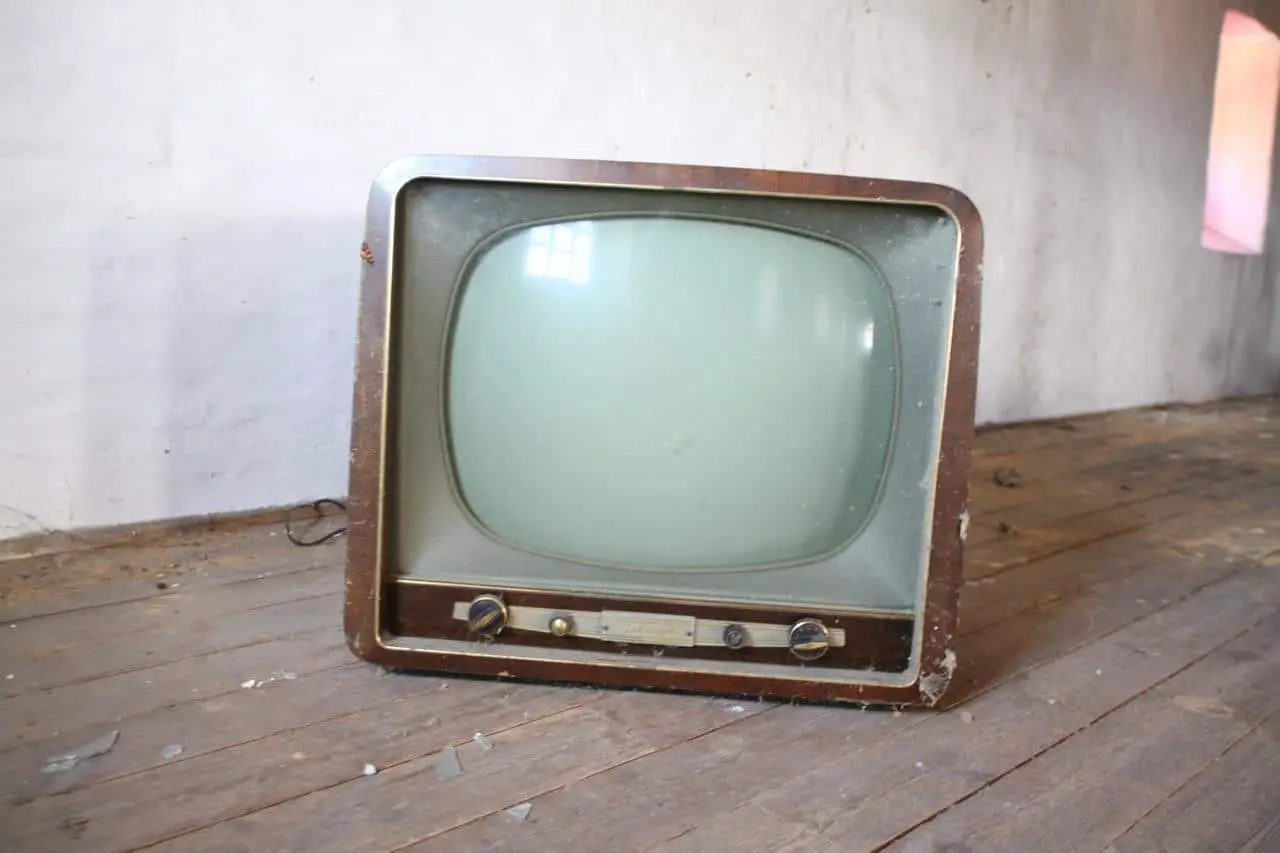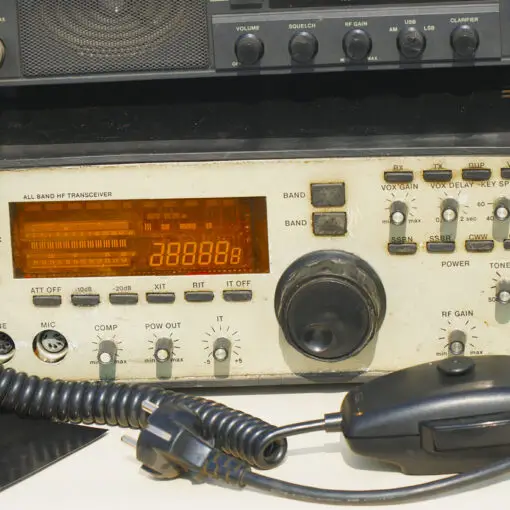A frequent claim purported by those against amateur radio is that it will interfere with nearby television sets. A cursory search on the Internet does nothing to help prove one side or the other. Several videos litter the web of disgruntled neighbors filming their TV screens. “This is what ham radio does to my TV!” they complain, and disable comments so no one can offer insights. Curious as to whether these claims were solid complaints or ill-researched lies against radio users, I delved further into the situation to get the truth of the matter.
Once upon a time, when every house in the neighborhood hadan antenna attached to the roof, amateur radio would interfere with thetelevision sets. But in our modern age of direct streaming and LED screens,there’s about a 95% chance that whatever’s messing with your TV isn’t anamateur radio. In most cases, it’s something wrong with the TV set itself. Thankfully,whether you’re the neighbor suffering problems or the radio operator yourself,there are ways to come to a solution by working together.
Users of amateur radio, frequently shortened to ham radio, are referred to by members of their own community as ‘hams.’ At first hearing, the nickname sounds like an insult to either the intelligence or emotional level of the radio user. It couldn’t be further from the truth. Ham radio users are well aware of the problems historically associated with their work and are almost always happy and willing to help figure out the problem. If you think a neighboring radio is causing interference on your TV, approach this neighbor about it. Keeping in mind that there is a very strong chance it’s the TV that’s the problem and not the radio, bring it up politely. Mention that something is causing interference, and you don’t know what it is, and want to check all options and see if it is the radio. Likewise, to all aspiring hams out there, if someone approaches you about interference to their TV, help them investigate! Cooperation will only help both parties in the long run.
So What Causes Screen Interference?
There are a number of reasons televisions can suffer interference. The most common are these two: electrical or transmission. Electrical interference is easier to test for, as it usually comes from inside the house. Things like hair dryers or an automatic garage door, if the wiring in your house is at all faulty, can cause video and audio cuts. Any older house is at risk of this happening. The recommended way to test for this is to keep your TV on, and walking around the house plugging and unplugging various appliances.
If the interference isn’t electrical, however, then it is coming from a transmission, and usually a ham radio. Older sets, a corroded wire, or improper shielding is usually to blame. The easiest fix for this kind of problem is a ferrite core on your power cord or a small TV filter. Once that’s been put together, the two of you can live harmoniously side by side with your varying technologies.
Plasma vs. LED Interference
The most common kinds of screens you find nowadays are plasma screens and LED screens. If you’re getting video interference on either of these two kinds of screens, again, there’s a very large chance it’s not from a ham radio. Interestingly, when it comes to plasma screens, the very opposite effect can happen—the plasma TV will cause interference to a radio! That’s one of the reasons plasma screens are slowly being phased out of modern technology and becoming defunct. Instead of a neighbor with a faulty screen showing up at the house of a radio operator, you could find a radio operator asking you for help. In these cases, the best bet is to call an electrician or the supplier of the TV.
Illegal Additions
There are some occasions where the interference being caused to a screen is entirely the ham’s fault, and those occasions are when they fail to comply with the rules and regulations set out for them. Just as street racers add illegal mods to their cars—bulked up engines and other such stunts—a ham radio user could make modifications that are completely outside the guidelines laid out by the FCC. If that’s the case, then the ham’s completely at fault and will have to change their setup to fit the guidelines. Anyone licensed to operate a ham radio knows what is and isn’t illegal, so if you’ve got a ham radio and you’re putting things on it that shouldn’t be there and causing hindrances to everyone in the neighborhood, it’s your neck and your license on the line.
Wi-Fi Interference
Today it’s more common to worry about your Wi-Fi than your cable. If the Internet in your house is rapidly going out or experiencing interference, your initial reaction might be to blame the local ham with the big antenna on his roof. But, much as the case with modern TVs, newer modems and routers are not likely to fall prey to ham radio interference. It’s the same sort of fix. Talk to your neighbor about it, test a few things out. If it is the radio causing the interference, it’s usually due to faulty equipment on the part of the one being interfered with.
Related Questions
Who can help solve the problem?
If you can’t get into contact with your neighbor, or if the partnership can’t solve the problem, there are outside sources to seek. Most cities have a Ham Radio Club, with professionals who have likely dealt with these kinds of problems several times. Others you can contact are an electrician or a representative from your cable company. Be advised that it has been reported, some companies have attempted to pin the problem on the ham radio even if their equipment is to blame, so that they won’t have to replace it or pay for a fix. Of course, not every company is so cynical, but working together with the ham operator can be crucial for getting fair feedback. After all, if it really is a problem on their end, they should be the one to fix it.
Who shoulders repair costs?
It can be a bit of a grey area when it comes to responsibility. As the fault usually lies in the equipment suffering the interference, that means it is the TV owner’s responsibility to pay for the ferrite core or shielding. In this situation, politeness is key—if both members of the party are respectful and feel respected in return, most ham operators would be happy to fix the problem themselves or give any equipment that they have. If the fault is entirely on the radio, then it is the responsibility of the ham operator to pay to fix it.
Whose side will the FCC fall on?
If you cannot come to an agreement about who is causing the interference, the Federal Communications Commission may get involved. When it comes down to legality, it comes down entirely to what is causing the interference. Unless it is coming entirely from the ham radio—which, as discussed when it comes to illegal modifications, is rare and not something most hams will do—it’s just up to the owner of the faulty equipment to fix it. If a ham radio is licensed and working completely within the boundaries of its own legality, there’s nothing you nor the FCC can do to make them pay for your upgrades.
Should I upgrade my TV anyway?
If you’ve got an older TV set, then honestly, you may just want to look at getting a whole new gig. It’s an age-old adage that the upkeep of an old car costs more than buying a new one, and the same is very much true for your technology. Though you might not be the kind of person who wants to buy the new cell phone line every time a new one is announced, and you certainly don’t have to, a TV that you’ve had for ten years is going to cause you problems regardless of whether there’s an amateur radio being operated in the house next door. Batteries die, wires get corroded, and certain things just go defunct. While you don’t want to go making any rash decisions if you find your old TV is getting constant interference from the radio, upgrading your entire system is something you’d want to consider.





